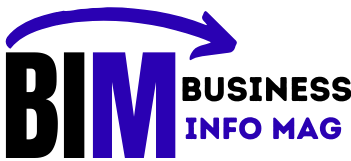With ever-changing regulations and the risk of costly penalties for mistakes, tax compliance can be a serious headache for small business owners. Tracking expenses, managing deductions, and filing it all on time can quickly become overwhelming without the right tools in place.
Integrated accounting and invoicing software offers a powerful solution that can help streamline the entire tax process. From automating calculations to organizing financial data for easy reporting, these tools simplify compliance and reduce the chance of error. If you’re evaluating your options for streamlining tax compliance at your small business, this guide will provide an overview of how integrated accounting software can help.
Table of Contents
Key Features of Accounting Software for Tax Compliance
Today’s integrated accounting software brings some key features to the table that help small businesses maintain tax compliance with minimal hassle, including:
- Automatic Tax Rate Calculation: Integrated accounting software automatically calculates taxes based on current rates, helping your business stay compliant with changing regulations. By minimizing manual data entry, this feature also reduces the risk of errors that could lead to underpayment or penalties.
- Filing Reminders and E-Filing: Accounting software provides reminders for upcoming tax deadlines and can assist with e-filing tasks such as filing a 1099 online. These features assist businesses in avoiding late fees while streamlining the filing process, making it easier to manage taxes without relying on third-party accounting services.
- Payroll and Invoice Integration: Some accounting software integrates with payroll and invoicing systems, making it easier to track tax-related data. This seamless flow of information helps ensure that all income, expenses, and deductions are captured accurately, simplifying both your day-to-day operations and tax season preparations.
Staying Up to Date with Changing Tax Regulations
State and federal tax codes change constantly, and keeping up can be a big challenge for a small business owner — especially with the threat of tax penalties looming. Integrated accounting software helps by automatically updating to reflect the latest tax laws, keeping your business compliant without the need for manual adjustments. This feature saves time and reduces the risk of errors, allowing you to focus on running your business rather than tracking regulatory changes.
In addition to automatic updates, many software solutions include built-in compliance checks that flag potential issues before you file. These checks help verify that all tax forms are completed accurately and that deductions and credits are applied correctly. By identifying potential problems early, you can reduce the risk of costly audits or penalties, giving you invaluable peace of mind as you head into tax season.
Simplifying Tax Reporting and Filings
Integrated accounting software makes tax reporting and filing much easier by generating detailed tax reports with just a few clicks. These reports near-instantly compile relevant financial data such as income, expenses, and deductions and can often even pre-fill tax forms, saving you time and minimizing errors. Rather than requiring you to pull information from multiple sources, the software streamlines the process, allowing you to file taxes with maximal confidence and minimal effort.
Digital tools also make it simpler to prepare for tax season and stay ready in the event of an audit. Integrated accounting software keeps your financial records accurate and organized, making them easy to access when needed. In the event of an audit, you’ll have necessary documents such as tax compliance reports easily available, reducing the stress of last-minute preparation.
Reducing Human Error and Manual Work
Manual data entry for tax compliance can be a high-stakes process. A simple error, like entering the wrong figure or overlooking a deduction, can be costly. Integrated accounting software minimizes these risks by automating key tasks, ensuring that calculations are accurate and up-to-date. Built-in validation tools also check for common mistakes before you file so you can submit with confidence that everything is in order.
Beyond reducing errors, automation saves time. The software pulls information directly from your records, greatly reducing the time and effort that employees spend on manual data input. The less time your employees spend on basic compliance tasks, the more time you can spend growing the business and tackling important strategic tasks. A team with automated and streamlined processes also can often handle more workload without feeling overwhelmed during busy periods like tax season.
Customization and Scalability
An integrated accounting software solution can adapt to the needs of different business units, as well as evolve and scale as a business grows. Businesses can customize their tax settings to fit their specific business structure and location, ensuring compliance with local, state, and federal rules. This flexibility allows businesses of all types to keep their tax processes accurate without unnecessary complications.
As your business expands, your accounting and invoice softwares should be able to scale right alongside it. Whether you’re entering new markets, adding services, or hiring more staff, the right system will have the tools to handle increased complexity. This adaptability reduces the chance of needing to switch systems as your needs grow. Instead, your software will be able to adjust as your business evolves.
The Value of Integrated Accounting Software for Tax Compliance
Integrated accounting software is a valuable tool for small businesses looking to simplify tax compliance. By automating tasks, reducing manual errors, and providing customizable features, these solutions make it easier to stay on top of ever-changing tax regulations and keep accurate, up-to-date financial records.
For small business owners, adopting digital tools can transform how you manage taxes, making the entire process smoother and less stressful. Whether your business is just starting out or expanding into new frontiers, integrated accounting software can adapt to your evolving needs. This flexibility helps keep your tax management efficient, freeing you up to focus on the bigger picture of running and growing a successful small business.




